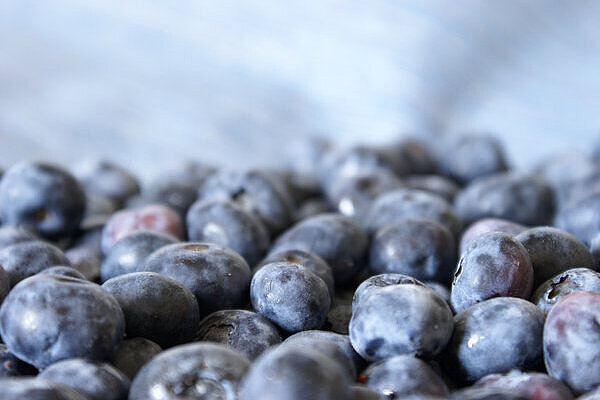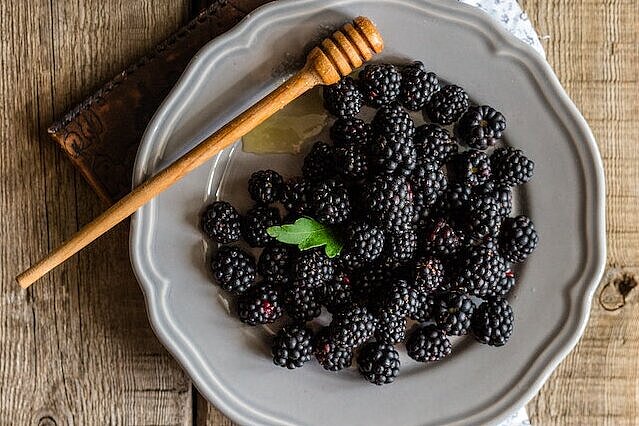Cranberries

What are lingonberries?
Lingonberries are the fruit of the Vaccinium vitis-idaea plant, which belongs to the blueberry family. They grow in many regions of the world, especially in North America and Europe. Lingonberries have a sweet and sour taste and are rich in antioxidants, vitamins and minerals.
Cranberries are often confused with cranberries, which are a related species. However, cranberries are larger and have a slightly different flavor than lingonberries. Both berries can be healthy for dogs, but there are some differences in tolerance and dosage.
Are cranberries safe for dogs?
Yes, cranberries are safe for dogs as long as they are fed in moderation. They are non-toxic and can even provide health benefits for dogs. However, there are a few things you should consider before giving your dog cranberries:
- Raw cranberries are very sour and bitter and are not readily eaten by most dogs. They can also be difficult to digest and cause stomach problems.
- Preserved lingonberry jam contains a lot of sugar, which is unhealthy for dogs and can lead to tooth decay or obesity. In addition, some jams may contain preservatives or other additives that can be harmful to dogs.
- Dried cranberries are a good alternative to raw or cooked berries as they are softer and sweeter. However, you should make sure that they are not sweetened or sulphurized. You should also soak the dried berries before feeding so that they do not absorb too much water in the stomach and swell up.
- Cranberry juice is another way of providing your dog with the healthy ingredients of the berries. However, you should also make sure that the juice does not contain any sugar or other additives. You should also dilute the juice with water so that it is not too acidic.
- Ready-made food supplements or dog foods containing cranberries are a simple and safe option for giving your dog the benefits of berries. However, make sure that the products are of high quality and do not contain any harmful ingredients.
How much cranberries can my dog eat?
The right amount of cranberries for your dog depends on various factors, such as his size, weight, health and tolerance. As a rule of thumb, a handful of fresh or dried cranberries per week is a safe amount for an average dog.
When you give your dog cranberries for the first time, you should start with a small dose and observe how he reacts. Some dogs may be more sensitive to certain foods than others and may experience side effects such as diarrhea or vomiting.
If your dog has kidney problems or diabetes, you should not give them cranberries as they are high in sugar and can promote the formation of urinary stones. If you are unsure whether cranberries are suitable for your dog, you should always ask your vet for advice.
What are the health benefits of cranberries for dogs?
Lingonberries have many health benefits for dogs based on their ingredients. Among other things, they can:
- Boost the immune system: cranberries contain a lot of vitamin C, which supports the dog's body's own defenses and protects it from infections.
- Inhibit inflammation: Lingonberries have an anti-inflammatory effect that can help dogs with arthritis, allergies or skin problems.
- Prevent urinary tract infections: Lingonberries have a mild diuretic effect and can prevent the colonization of bacteria in the bladder. They can therefore be helpful for dogs with bladder problems or frequent urinary tract infections.
- Promote digestion: Cranberries are a good source of fiber, which can stimulate a dog's bowel movements and prevent constipation.
- Nourish the skin and coat: Lingonberries contain minerals such as potassium, calcium and magnesium, which are important for the health of the dog's skin and coat. They can also make the coat shinier and smoother.
Cranberries are safe for dogs and can even offer them health benefits. However, you should only feed them in moderation and avoid sugary or preserved products. If you want to give your dog cranberries, you can use fresh, dried or unsweetened juices or use ready-made food supplements or dog food. However, always make sure that your dog tolerates the berries well and has no side effects.
If you notice any signs of hypersensitivity or poisoning in your dog, you should see your vet immediately. We are not a substitute for a vet, but we try to be as accurate as possible. Every dog reacts differently and we recommend you get a second opinion or consult your vet if in doubt.
Stay healthy and take good care of your four-legged friend!😊
Similar to Cranberries
Blueberries (Vaccinium myrtillus) are small, round berries with a blue to purple color. They grow on deciduous dwarf shrubs that belong to the heather family (Ericaceae). Bilberries are native to...
Cranberries have many positive properties for dogs. They contain a lot of vitamin C, which has an anti-inflammatory effect and strengthens the immune system.They are also rich in antioxidants, which...
Currants are the only genus in the gooseberry family. There are different types of currants, which differ in color, taste and nutritional content. The best known are the red, white and black...
Blackberries are berry fruits that belong to the rose family. They grow on thorny bushes, which can often be found on forest edges, hedges or fences. The fruits are black or dark purple when ripe...



